Anything but flat: Dutch-language literature as a guest in Germany
From 21 to 24 March, Dutch-language literature was the focus of attention at the largest book fair open to the public in Germany, the Leipzig Book Fair, and during Leipzig Liest, the biggest literary city festival in Europe. With no fewer than 283,000 visitors, the Leipzig Book Fair was an unforgettable success.
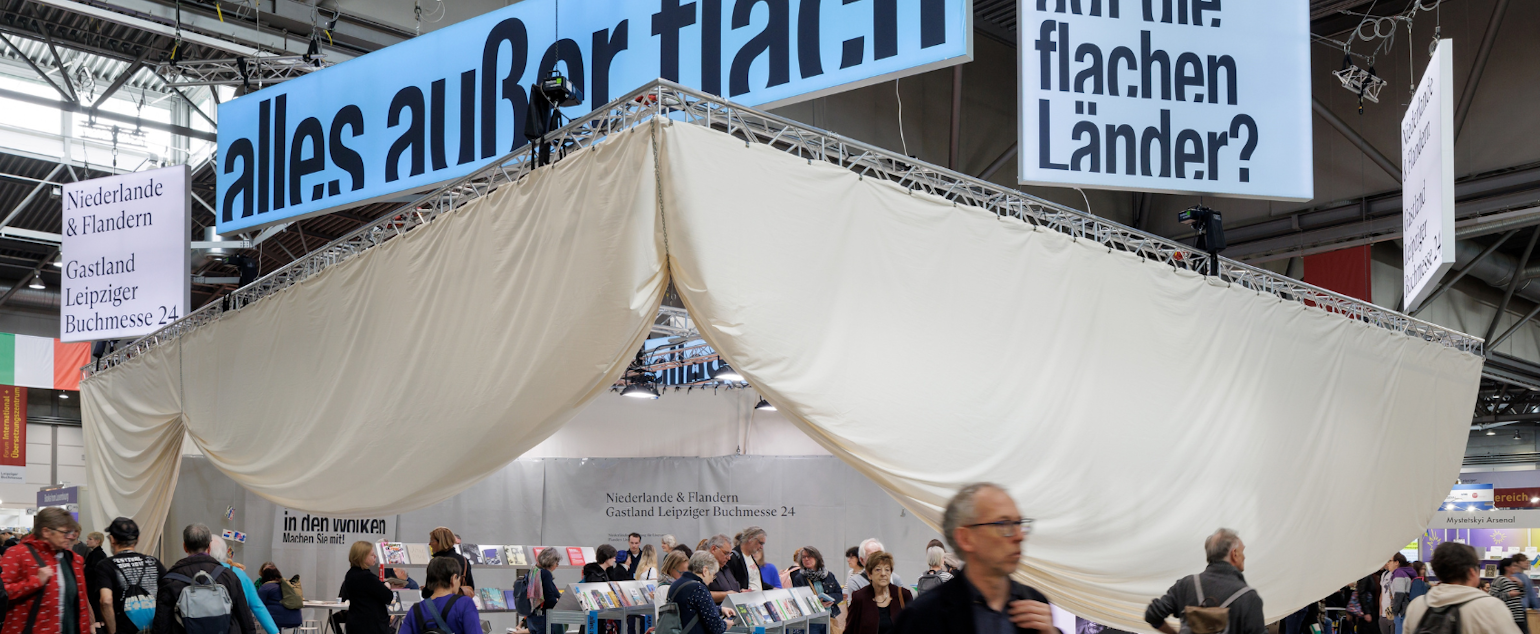
From professional publishers to passionate readers, there was immense enthusiasm for our delegation of forty Dutch-language writers, illustrators, poets, performance poets, comic book authors and dramatists. Under the heading ‘Alles ausser flach’ (Anything but flat), the German public was presented with a wide-ranging literary programme. And it went down well. Both at the stand and in the city, the events drew a crowd, while the many questions we were asked speak volumes about just how interested German readers are. Where can I find the book? Can I buy the book? Are the original books in Dutch available too? Can I still reserve a seat for one of the performances at the stand?
What a magnificent feast of literature and culture we’ve been able to organize together with Flanders and the Netherlands! With the programme of ‘Alles ausser flach’ you’ve shown how fresh and sustainable literature can be. You’ve removed all the obstacles to a firm anchoring of Dutch-language literature in the reading public, the publishing branch and the media audience in Germany.Astrid Böhmisch, director of the Leipzig Book Fair
Here we look back at a few Flemish highpoints and you can read the journal kept by Gaea Schoeters, enabling you to experience it all from a front row seat.
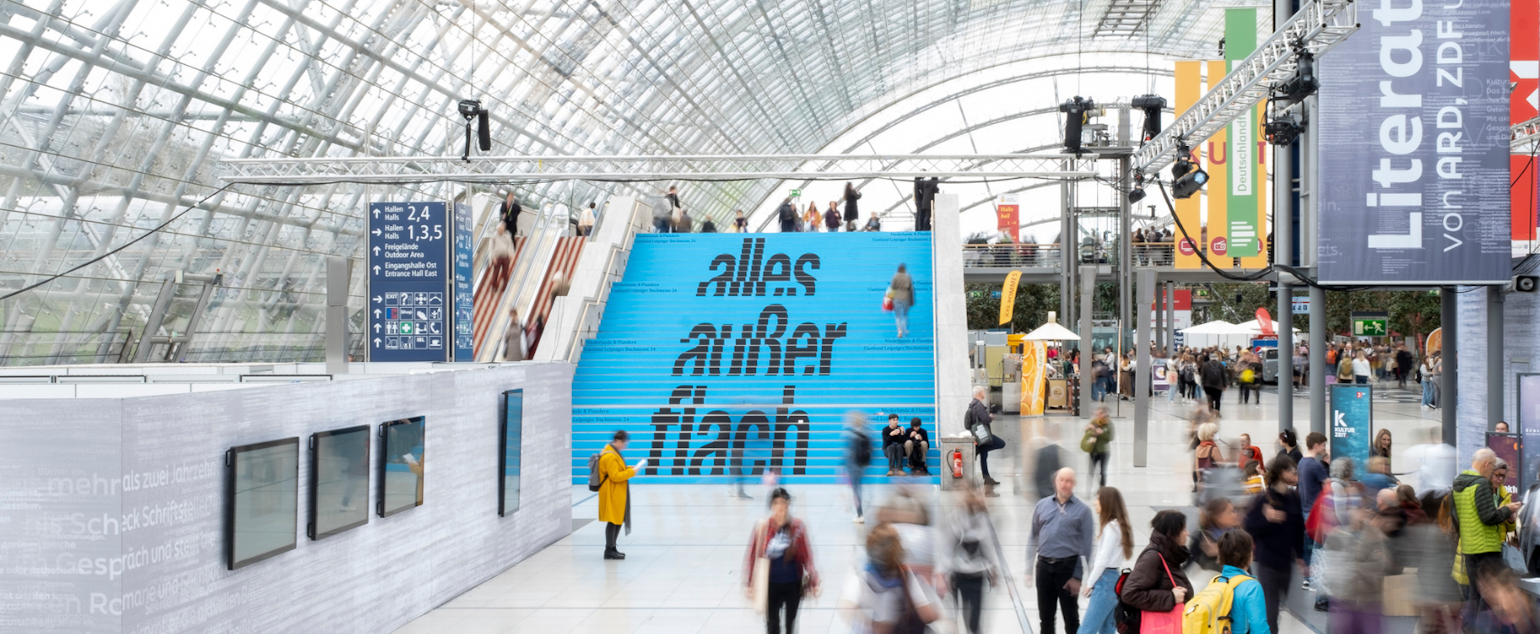
Comic books as a fully fledged literary genre
The German Museum of Books and Writing staged an exhibition called ‘Nice to meet me. Comic and autobiography’. While in Germany comic books are still sometimes seen as ‘a strange medium for children who aren’t keen on reading’, we in Flanders have for years regarded the genre as a cultural asset that can open up new perspectives on the problems and challenges of a complex world. Seven Dutch and Flemish artists presented themselves to the German public in the exhibition, including Karolina Szejda, Ephameron and Judith Vanistendael from Flanders. Judith was present in Leipzig too, and she inspired young and old during the various events at our stand in and near the Fair. She also engaged in a conversation with Joris Mertens and the French-speaking Clara Lodewick to discover whether there is such a thing as ‘the Belgian comic’.
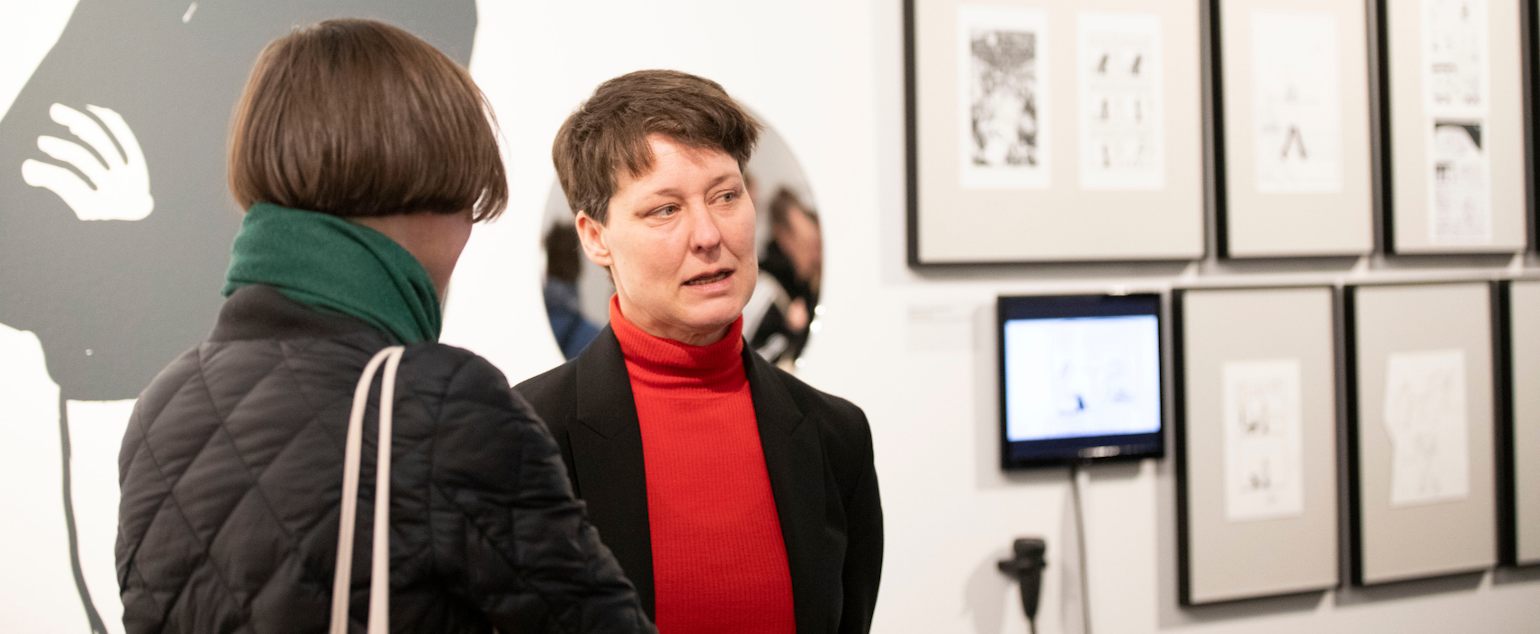
German public falls for the charms of Bahar
Author Michael De Cock and illustrator Arevik d’Or came together to create the cheerful and uncomplicated ‘Bahar Bizar’, translated into German by Rolf Erdorf. Bahar has two mothers and no father. Many other things about him are different too. The appeal of the timeless story of identity and growing up was not confined to the performance by Michael and Arevik on Saturday evening at the fair, it proved a great success during four readings at schools in the area as well. The young German audience was utterly captivated and actively took part, for example in the contest with paper frogs they folded themselves.
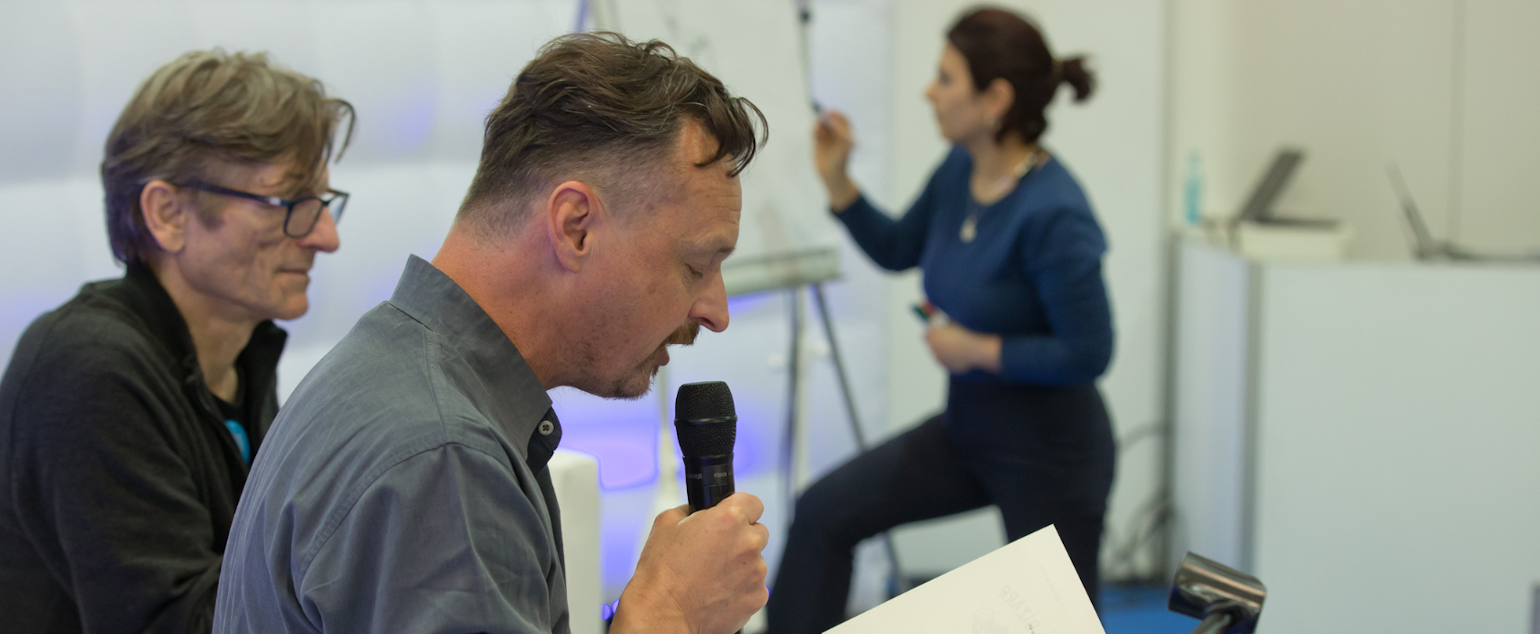
Paul van Ostaijen inspires artists in three languages
More than 150 Dutch- and German-language artists from various disciplines were inspired by Paul van Ostaijen’s book of poetry ‘Bezette stad’ (1921) to develop new artistic forms as a response to the crises of our times. What started three years ago as a lockdown project, on the initiative of the Flemish-Dutch Huis deBuren and dozens of partners, has grown to become a solid plan for the commemoration of the centenary of the poet’s death, in 2028. During the Leipzig Book Fair, the Flemish avant-gardist was honoured with six events and an exhibition that placed his work in the context of the great questions that occupy us in our own day. Biographer Matthijs de Ridder was there and saw that it was good. In Leipzig he promoted an adaptation of his ‘Paul van Ostaijen: the poet who wanted to change the world’, translated into German by Anna Eble.
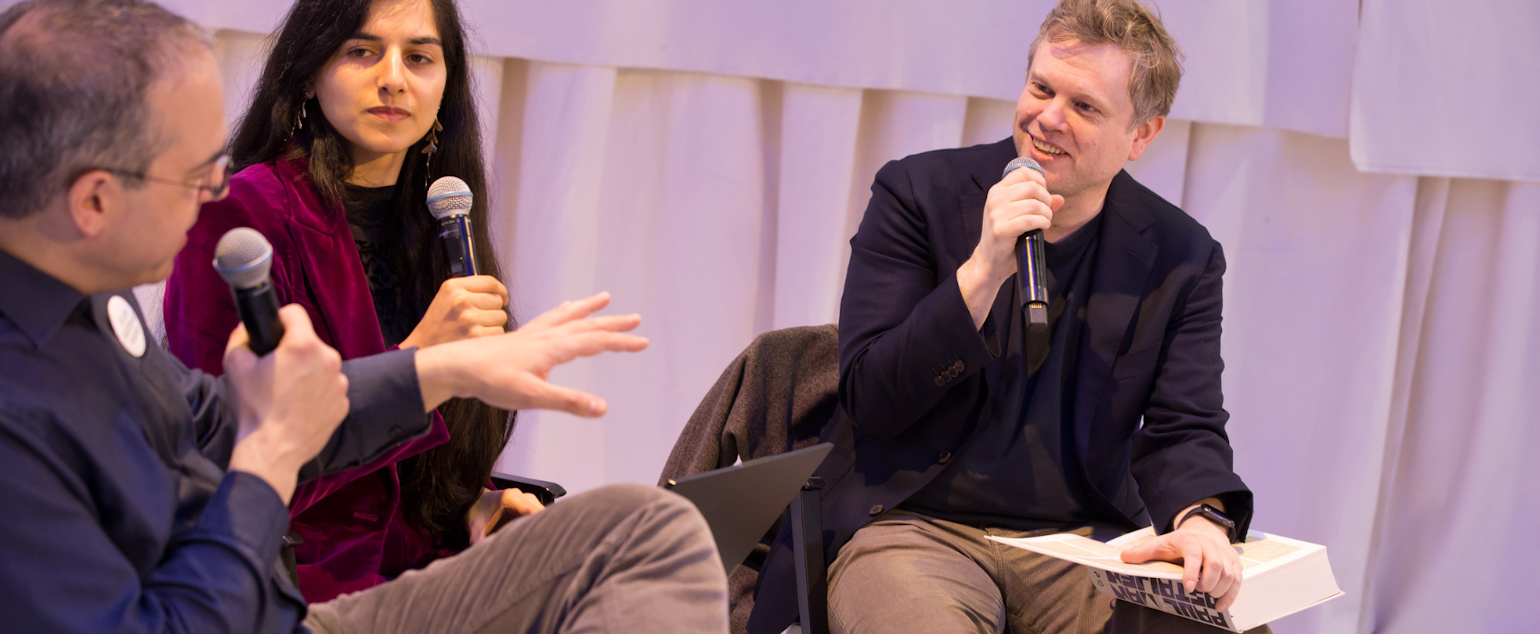
Trimaran: sparks and fireworks
On Saturday evening, Lies Van Gasse had a chance to talk about her contribution to ‘Trimaran’ # 5, a bilingual periodical from three countries that was launched when the Netherlands and Flanders were joint Guest of Honour in Frankfurt in 2016, and which is still up and running. ‘Trimaran’ – named after a sailing boat with three hulls – is both a refined poetry magazine and an exciting translation workshop. For the fifth issue, Lies entered into a dialogue with her Dutch colleague Mustafa Stitou and the German poets Simone Scharbert and Dominik Dombrowski. They wrote new work and translated each other’s poetry, producing creative sparks and fireworks.
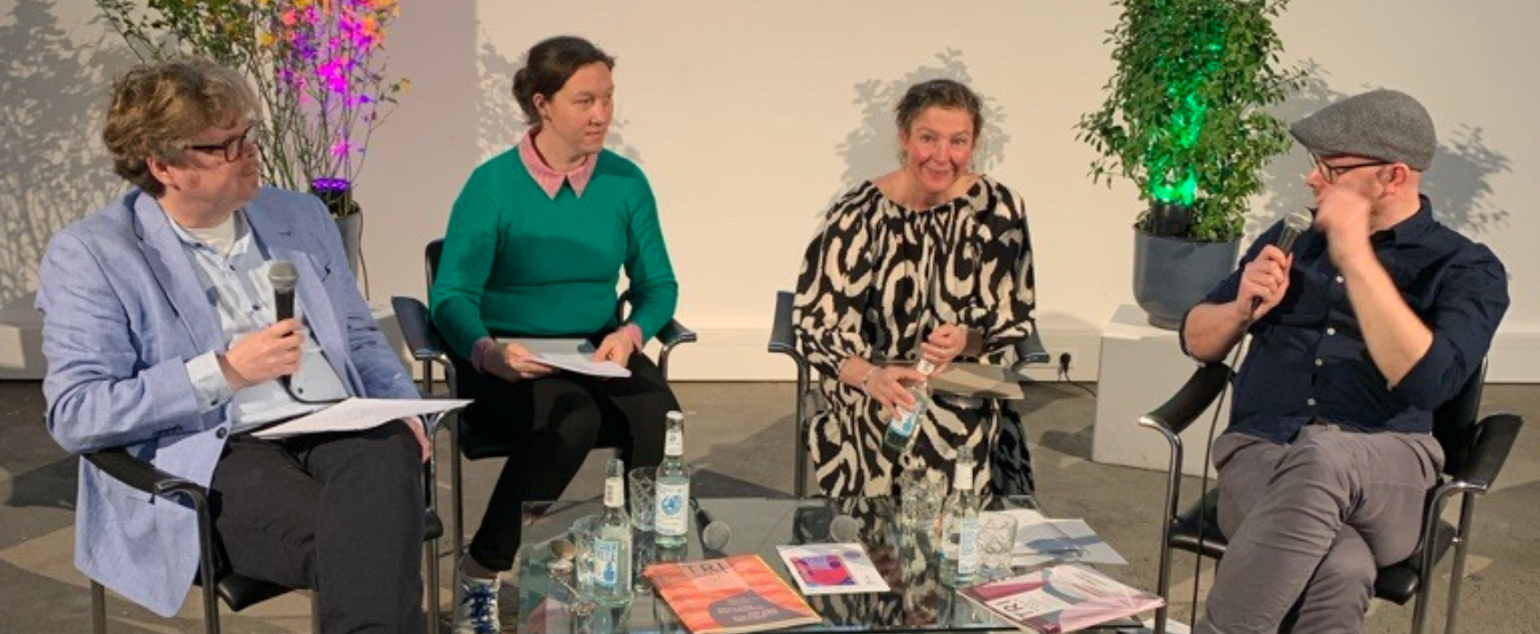
Gaea Schoeters: “Support works”
From the kick-off in Amsterdam to the final party in Leipzig, Gaea Schoeters was everywhere. As author of the gripping, disconcerting novel ‘Trophy’ (translated into German by Lisa Mensing) and as a representative of the Fixdit collective, she was given pride of place in the Guest of Honour programme in Leipzig. Gaea kept a diary for us.
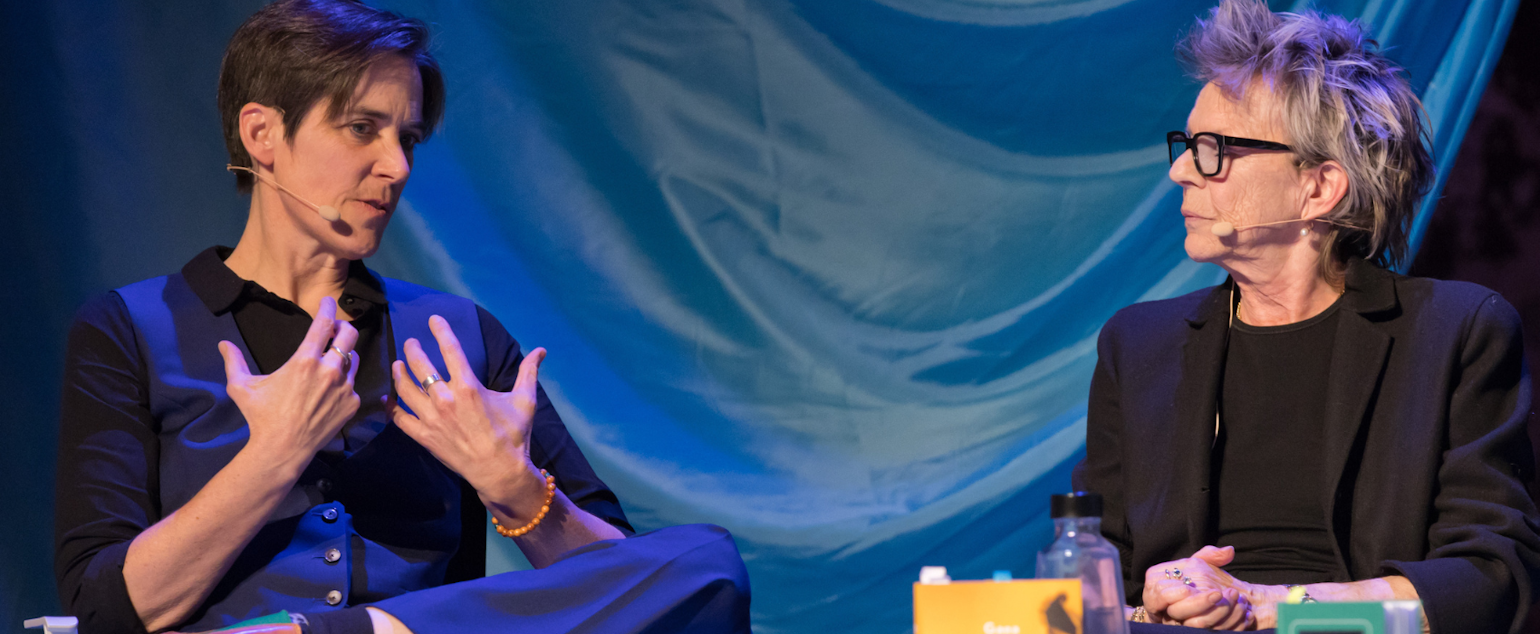
Feast of reading, thanks to translators
Without translators there would be no Dutch literature in Germany. It’s because of their hard work that our writers find a readership in other languages. Translator Andrea Kluitmann, who translates from Dutch into German, was present at the Leipzig Book Fair and her comprehensive report can be found on the website of the Dutch Foundation for Literature, our partner as Guest of Honour in Leipzig.
These are the authors from Flanders that travelled to Leipzig with us: